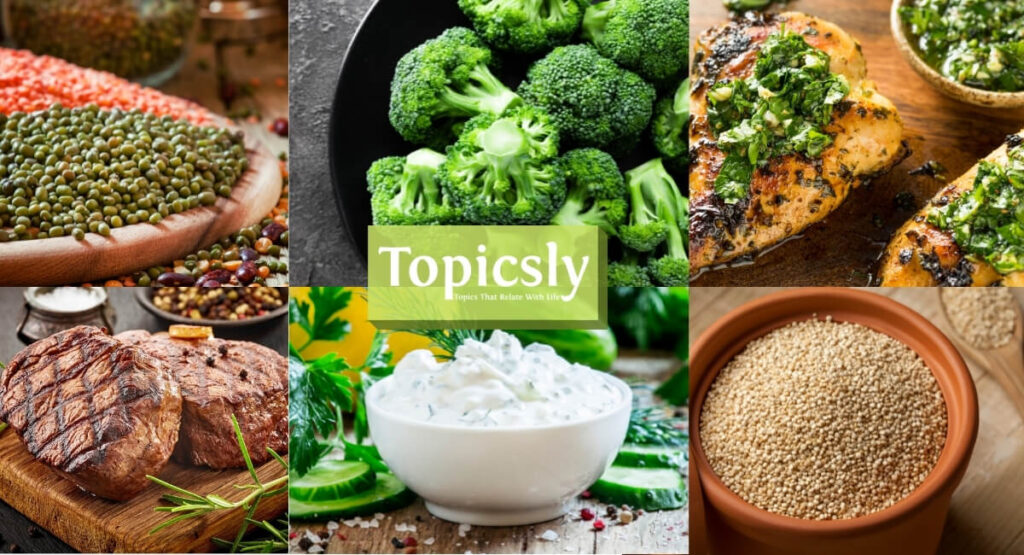Cholesterol is a waxy fat-like substance that is hydrophobic, hence insoluble in water. It is found and travels throughout the blood on proteins called lipoproteins. There are two types of lipoproteins called LDL’s and HDL’s.
Low-Density Lipoprotein (LDL) is the ‘bad cholesterol that can accumulate in the arteries leading to cardiovascular disease, while High-Density Lipoprotein (HDL) carries excess cholesterol to the liver to be expelled out of the body.
It prevents cardiovascular diseases, cardiac arrests, and atherosclerosis. Cholesterol is present in the partially permeable membrane and gives it strength and flexibility. It also plays a role in producing hormones, vitamins, and bile necessary for fat digestion.
A healthy diet can maintain levels of cholesterol in the blood. Here are the top 10 worst foods for cholesterol.

Top 10 Worst Foods for Cholesterol
1. Egg Yolks
Eggs yolks are considered to have the highest amount of cholesterol out of the whole egg. According to Medical News Today, they are a good source of nutrients and minerals such as calcium, iron, magnesium, phosphorous, potassium, sodium, and zinc. Still, along with all these benefits, egg yolks come with 186 mg of cholesterol, which is more than a person’s daily intake.
2. Liver
Animal liver being in the list may come as no surprise as cholesterol is made in the liver, taken to the liver, and stored there. The liver is filled with iron and maybe a healthy dish to some, but it also contains a high amount of cholesterol, and consumption of meat organs should be to a minimum as cholesterol is present in them.
3. Cream Cheese
Cream cheese tastes excellent, whether on a bagel, bread, even in a salad or incorporated in a cake. It’s readily available in markets and is consumed in large amounts, but cream cheese is also one of the foods high in cholesterol and should not be consumed in high doses.
4. Butter
Without a doubt, almost everything we consume tastes and is made better with butter: snacks like popcorn, toast, mashed potatoes, even dishes such as chicken that is cooked with butter and herbs, and the list can go on and on.
But suppose you have high cholesterol and heart disease or have a history of cardiovascular diseases. In that case, you might want to find an alternative to the cholesterol-filled block of butter for some vegetable oil instead.
5. Red Meat
Red meats like beef, lamb, and mutton tend to contain more cholesterol and saturated fat than other poultry. This can provoke an increase in cholesterol levels and make already existing heart disease worse, as stated by the ‘American Heart Association.’
Healthy alternatives to red meat include vegetable proteins, also known as vegan protein, such as beans, boiled/steamed/grilled chicken, and fish, enriched in omega-3 fatty acids that contribute to a healthy heart, as also stated by the American Heart Association.
6. Shrimp
Despite being a low-fat food, this seafood specialty is surprisingly high in cholesterol. A 4-ounce serving of shrimp has 170 milligrams of cholesterol in it. That’s more than half of your recommended daily intake.
7. Fried Food
Fast foods are high in fried fats and almost always involve some animal product, potentially threatening your cholesterol levels. Fast food consumption is a significant risk factor for numerous chronic diseases like heart disease and obesity. Studies have shown that those who consume fast foods regularly are likely to have a high cholesterol level, heart disease, and even decrease the ‘good’ cholesterol; HDL.
Processed foods should be eaten more minor, and it is wise to cook your meals at home to avoid cardiovascular diseases, heart diseases, diabetes, or obesity.
8. Desserts
Biscuits, cakes, ice cream, and other desserts are unhealthy foods that tend to be high in cholesterol, along with lots of sugar and unhealthy fats
Frequently indulging in these foods can harm overall health and lead to weight gain and obesity. Moreover, these foods are often devoid of the nutrients your body needs to carry out daily activities and to remain healthy. These include fiber, vitamins, minerals, protein, and healthy fats.
9. Sardines
Similar to shrimp, sardines are a potent seafood source of cholesterol. Since cholesterol is a waxy, fatty substance, and because seafood contains lots of good fats and omega 3 fatty acids, it is also logical to state that some seafood sources also have a high amount of cholesterol that can prove harmful to the body. An ounce of sardines contains approximately 40 milligrams of cholesterol, and consuming more than an ounce in a sitting is very likely possible.
10. Muffins
Muffins can be a healthy breakfast choice for always on the go, but that can depend on how the muffin is produced.
Eating a low-fat bran muffin made with whole wheat flour can be added to the healthy choice of foods, as indicated in everydayhealth.com
However, ‘customized’ muffins that we bake at home with whole milk and eggs and added with extra treats, like chocolate chips, more sugar, or extra butter, can have up to 8 grams of fat in one serving and hence can contribute to high levels of cholesterol in muffins.
Conclusion
Cholesterol is a controversial and misunderstood topic. They are vital for health and should be consumed in healthy amounts. To avoid the saturated fats and trans-fats that can lead to high cholesterol and ultimately heart diseases, diabetes and obesity should be avoided. Healthy food meals cooked at home should be preferred rather than fast food, processed or canned food.
You May Also Like:
1. Top 10 Bone Building Foods to Build Strong Bone


